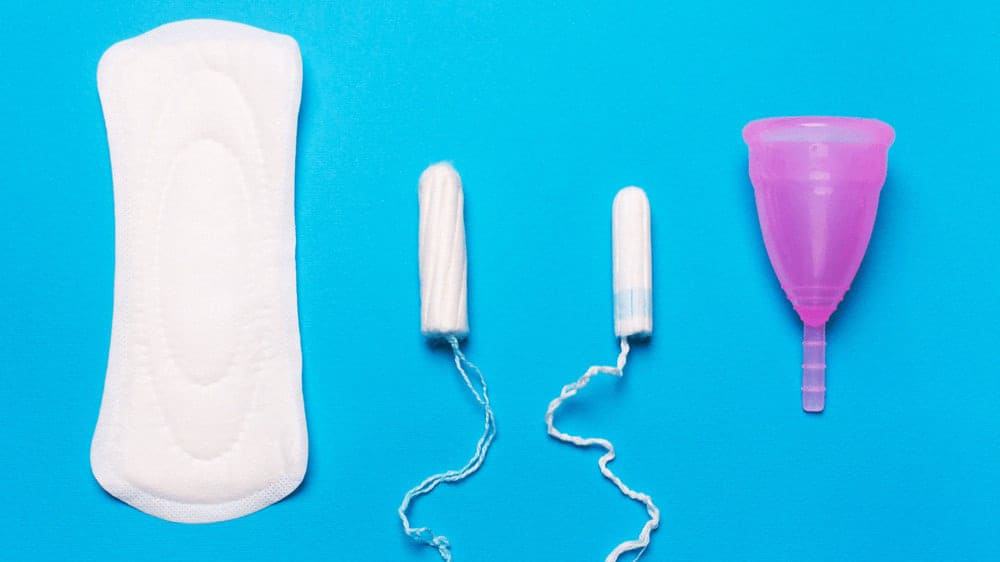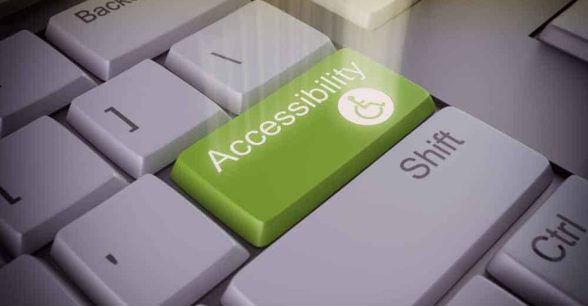Is There Space for Disabled People in the Period Positive Movement?
Content note: menstruation
As a disabled lesbian cisgender woman, taking birth control to prevent menstruation has made my life so much easier. When I first got my period as a teenager, my health was fairly stable and managing my period every month was no more difficult than it was for my non-disabled peers, but it was after my spinal fusion surgery that the problems began. I was left struggling with chronic pain and limited mobility, which mostly restricted my ability to walk and move, but it also had far reaching consequences, like making it challenging to cope with my period.
Despite my constant efforts, I’ve never been able to properly insert a tampon due to my spinal and hip problems, leaving me with pads as my only option. I gave a menstrual cup a go, which I found a little easier than tampons, but I was still dealing with increased back pain during my period every month. When you are already dealing with chronic pain you certainly don’t want any extra added on top. As a wheelchair user I also sometimes have trouble finding an accessible toilet to change my sanitary products, with the fear of leaking through constantly at the back of my mind. So, I did my research and asked my doctor to put me on a contraceptive pill that would hopefully stop my period and eliminate all these difficulties for me.
And it worked. I’m on the progesterone-only pill and it has completely stopped my periods. I cannot even begin to explain the relief I felt when my periods began to stop. It was one less problem on my list. I wouldn’t have to worry about finding an accessible toilet anymore, or having several days a month where my pain would skyrocket to unbearable levels. I happily waved goodbye to my period.
I am a strong supporter of the period positive movement, which aims to break down the stigma that surround periods while providing education and starting a positive conversation around periods. But I felt like choosing to stop my periods made me less of a supporter, like I was contributing to the stigma or not embracing my period like others do. But disabled people are often forgotten in these conversations within the movement, making me feel even more shut out. When people encourage moving away from single use sanitary products, even though these options often suit disabled people better, we’re forgotten. We don’t all have the energy to sterilize a menstrual cup or wash reusable pads every month. Our energy is precious and we deserve the right to save it for other things in life, safe in knowledge that we are still welcome in this movement and community.
This extends beyond just dealing with periods. When it comes to anything reproductive-related, we are forgotten. Assumptions are made that disabled people don’t need reproductive services, that we don’t need birth control or advice on sex and relationships. One example are cervical screening tests, I have countless friends who have been denied or delayed access to these life saving tests due to their doctor’s not having the correct equipment they need to transfer on to the bed, or position themselves comfortably. I’m a couple of years off my first screening but it’s already something at the front of my mind, how will I be able to hold the needed position? Will they be understanding of my disability? There are barriers everywhere. Disabled people deal with the same things that non-disabled people do, and the fact that we might need to do things differently should not be a mark against us, and should certainly not deny us access to medical care and advice.
We are also forgotten in the sense that there is little to no advice out there about dealing with your periods when you’re disabled. I wish I’d known about period underwear sooner, for example. Although the industry has boomed in the last few years, period underwear is not a new idea, but the only options I was ever presented with were tampons and pads, without much explanation on how to use them. There was no one to guide me on how to insert a tampon as someone with limited mobility, no information on how to do things that seemingly looked so easy for everyone else. Everything is centred around nondisabled people, leaving many of us feeling othered.
We have a lot of work to do to make period positive spaces more welcoming and inclusive but in recent years I have seen these issues being discussed more and more, and I can only hope that people are listening so that we can work together to break down the stigma, allowing people like myself to speak honestly about my experience. While I still don’t feel completely welcome within the period positive movement I see now that stopping my period doesn’t make me a bad person or activist. Being period positive is about supporting every individual’s choice and that includes my choice to make my life easier by stopping my period.
The first line of the article has been updated from the original to ensure the language is trans-inclusive.
About Rooted In Rights
Rooted in Rights exists to amplify the perspectives of the disability community. Blog posts and storyteller videos that we publish and content we re-share on social media do not necessarily reflect the opinions or values of Rooted in Rights nor indicate an endorsement of a program or service by Rooted in Rights. We respect and aim to reflect the diversity of opinions and experiences of the disability community. Rooted in Rights seeks to highlight discussions, not direct them. Learn more about Rooted In Rights



